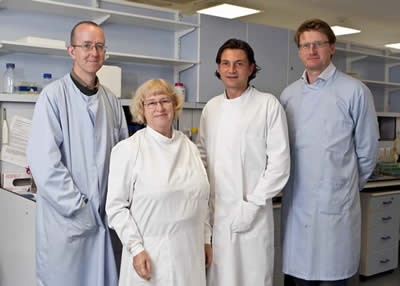Cardiff Metropolitan University has recently had its first KESS PhD completion; the project developed novel packaging solutions for the freeze-drying of specialist pharmaceuticals. The KESS student, Dr Chris Cherry, was based at the host company, MicroPharm Ltd in West Wales. The academic supervision for the project was provided jointly by The National Centre for Product Design & Development Research (PDR) and The Cardiff School of Health Sciences (CSHS); both academic schools are based on Cardiff Met’s Llandaff Campus. The KESS project covered the science of mass and heat transfer characterisation through to the challenges of maintaining sterility and containment within a freeze dryer. This research project delivered a very successful PhD in just over three years. In addition, the collaborative nature of the project has derived a range of supplementary benefits for the student, company and university. This case study describes the chronology of the KESS project, and attempts to capture the tangible (and intangible) benefits to the three main parties.
Read more »Case Studies: MicroPharm
The development of sensitive methods to quantify specfic antibodies directed against Clostridium difficile toxins and their use to provide improved immunotherapeutic products (Presentation)
Over the past decade the ‘superbug’, Clostridium difficile, has become the most common hospital acquired infection in the developed world. Epidemic strains have emerged which exhibit enhanced virulence factors including multidrug resistance, increased capacity to form highly resistant spores and produce significantly more toxins A and B than conventional strains. This project with MicroPharm, a small bio-pharmaceutical company based in West Wales, looks at recombinant fragments based on C. difficile toxins A and B that have been used to raise antibodies in sheep.
Read more »








